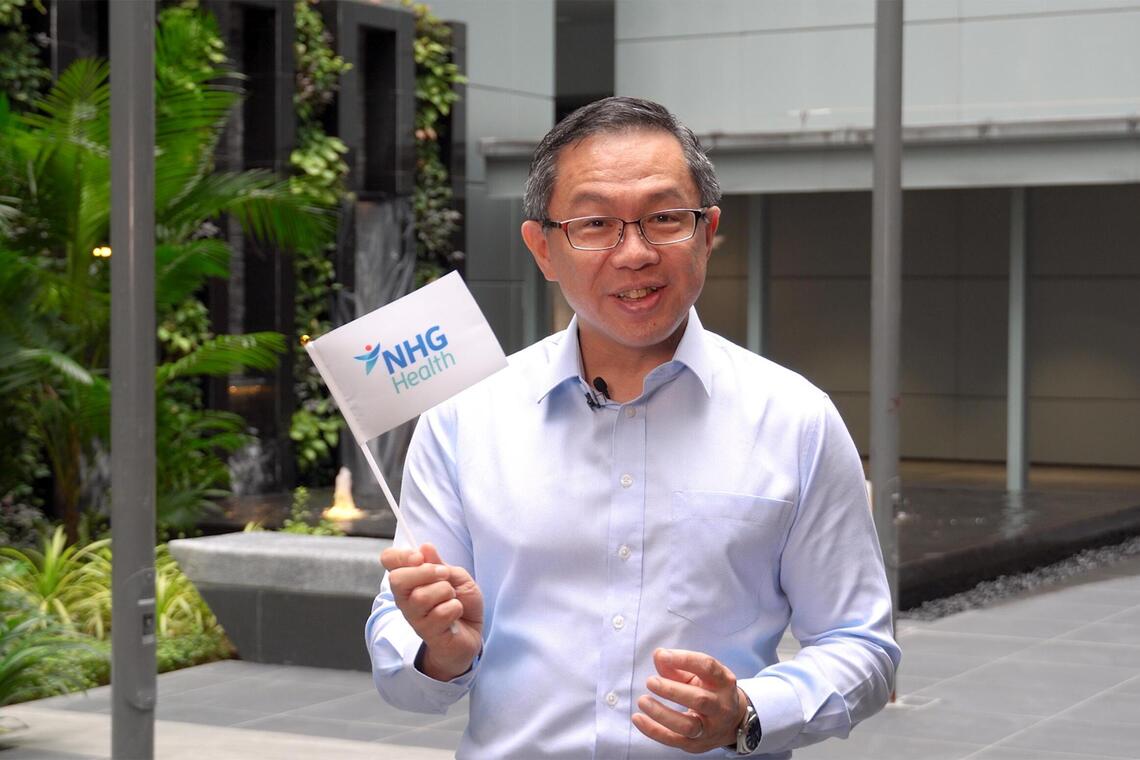SINGAPORE – With over six years of private sector experience, the new chief of NHG Health brings a strong sense of financial discipline to his role, a quality that is evident in how he manages the cluster.
NHG Health group chief executive Joe Sim said that having good financial discipline is not merely about cost savings, but also ensuring that monies are spent in value creation, a point he has emphasised repeatedly to his staff.
“We have many good use cases which makes sense to be used in healthcare. But having a good use case is not the same as having a good business case,” said Professor Sim.
He highlighted this point by referencing pilot programmes aimed at deploying
artificial intelligence (AI) in healthcare
. The costs of such pilots are usually absorbed by the Ministry of Health, which means the financial burden is not immediately evident to the clusters conducting them. However, the costs could influence their decision to formally adopt the AI tool after the pilot phase to benefit more patients.
Prof Sim stressed the importance of knowing the costs early on, as some cases offer moderate benefits but come with disproportionately high costs.
“For such cases, we should junk them instead,” said Prof Sim, rather than finding out much later that these are not financially sustainable to scale up.
Before taking over the reins of NHG Health, Prof Sim was the group chief operating officer and acting group CEO of IHH Healthcare Berhad, which has more than 80 hospitals across 10 countries, including the Mount Elizabeth hospitals in Singapore.
Before joining IHH, he was with the National University Health System. He had also taught at Nanyang Business School, and worked at government ministries and private companies.
Financial discipline has become even more critical following recent healthcare funding changes. With the launch of Healthier SG in July 2023, Singapore’s healthcare funding
shifted towards a capitation model
, where each healthcare cluster was assigned a population of about 1.5 million residents, and paid a pre-determined amount based on the residents’ age demographics.
This approach incentivises clusters to focus on preventive care and intervening early, rather than incurring higher costs treating illnesses in hospitals.
Prof Sim said that with this shift, “we need to be smarter in the way that we invest in new things”. This would require the cluster to explore ways to deliver better outcomes with fewer resources, which frees up resources for investment elsewhere.
tap science and research
to better assess the value that certain investments can bring, an area that NHG Health is collaborating with the Lee Kong Chian School of Medicine on. The cluster also allocates dedicated time for its clinicians to conduct research.
When asked how his background – he is an engineer by training, with experiences in and outside the healthcare sector – contributes to his leadership style, he said that despite not having a clinical background or training, the fundamentals remain the same – understanding healthcare systems and fostering meaningful discussions with his doctors, nurses and staff, including what constitutes good quality care.
He also paid tribute to his mentors and co-workers in the healthcare sector who walked the talk and demonstrated a strong sense of public service.
This includes Mr Tan Tee How, chairman of the board of NHG Health. Prof Sim had worked with him in the early 2000s when Mr Tan was the founding CEO of the National Healthcare Group, now known as NHG Health.
Prof Sim is a leader who leads by example. He actively participates in every one of NHG Health’s leadership training sessions – often held at Outward Bound Singapore – where he engages in bonding exercises, sleeps in the bunks and even “feeds the same mosquito”.
He believes this involvement helps build strong bonds among staff, which are important when collaboration is needed to solve issues and drive change within the cluster.
He pointed out that while decisions at the CEO level might seem straightforward in principle, ensuring they are effectively implemented relies heavily on a “critical layer” of leaders, such as department heads, directors of nursing or allied health chiefs. “That is the level that really makes a lot of difference,” said Prof Sim.
This spirit of leading by example also extends to Prof Sim’s active presence on various NHG Health social media platforms to promote more of the cluster’s good work, as NHG Health staff are generally “very quiet and understated”.

NHG Health group chief executive officer Joe Sim fronting an NHG Health social media video.
PHOTO: NHG HEALTH
However, he is not the sole poster boy as he also encourages others to front the publicity. “This is a shift for me because I am a very private person… but I cannot be asking them to do, yet I do not set an example”, said Prof Sim.
NHG HealthSingapore healthHealthcareMinistry of Health

